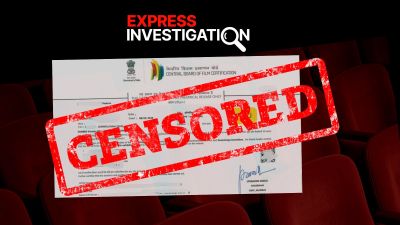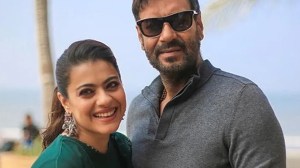Govt bid to stall CBI, ED revamp
NEW DELHI, Dec 20: The Government is learnt to have decided to write to the Chief Justice of India and convey its view that the apex court'...

NEW DELHI, Dec 20: The Government is learnt to have decided to write to the Chief Justice of India and convey its view that the apex court’s order on the selection of the Central Vigilance Commissioner, the CBI and Enforcement Directorate chiefs should be held in abeyance till the next Government takes over.
This was the upshot of the high level meeting Prime Minister I K Gujral held yesterday with senior officials of the Government.They were of the opinion that a caretaker government could not follow the Supreme Court’s diktat on matters which required Parliament’s go ahead. In any case, with elections around the corner, such changes could only be contemplated by the next government.
The Court’s order poses another ticklish problem for the government. The judgement had specifically forbidden an extension to CBI chief R C Sharma, who retires at the end of January 1998. The decision taken by the Gujral Ministry so far has been to give an extension till March 31,1998 to all officials retiring during the interim period. The idea was that the new government should make these appointments. It is in pursuance of this decision that Cabinet Secretary T S R Subramaniam got an extension of three months recently.
The apex court’s surprise order last week laid down that the Central Vigilance Commissioner be given statutory status, and that he be held responsible for the efficient functioning of the CBI. The CBI shall report to the CVC, the Court directed, about the cases taken up for investigation,their progress, and also those moved by the investigating agency for sanction of prosecution of public servants.
The Court had also ordered that the CVC be selected by a committee comprising the Prime Minister, Home Minister and the Leader of the Opposition. It held that a committee comprising the CVC, Home Secretary and Secretary Personnel recommend a panel for the appointment of the CBI Director and the final selection be made from it by the Appointments Committee of the Cabinet. The Court also laid down a minimum tenure of two years for the CBI Director and the Enforcement Directorate chief, irrespective of the date of their superannuation.
The court order has already come in for criticism from the political leadership. Former Prime Minister Chandra Shekhar was the first to express his concern at “this disturbing trend”. He told The Indian Express today, “The powers of Parliament cannot be arrogated by anyone…At this rate Parliament’s work will be done by judges.”
Law Minister Ramakant Khalap has already gone on record to hint that the the Court’s orders were not binding and the Government would consider the suggestions and decide what it should do.
The Supreme Court’s order delivered by Chief Justice J S Verma, due to retire on January 17 next month, and Justices S P Bharucha and S C Sen, has thrown the government in a tizzy. For a start, the CVC, who is appointed by the Government, cannot be given a statutory status without a legislation passed by Parliament. Even an ordinance by the President would need to be ratified by Parliament and there is no surety that the 12th Lok Sabha would give its approval.
The Government is also of the view that the superintendence of the CBI cannot be given to the CVC as the law stands today. It would require an amendment in the Delhi Special Police Establishment act, 1946, which vests the Central Government with the power to oversee the functioning of the country’s premier investigating agency.
Also involved is the question of accountability. While the Prime Minister, under whom the CBI functions, is accountable to Parliament, this is not the case with the Central Vigilance Commissioner, who is normally a bureaucrat, no matter how impeccable his integrity.
The Government is also worried about the implications of the order on the rights of the executive and of Parliament. While the Supreme Court’s concern–that investigating agencies should function independently and that the selection and tenure of its officers be done with transparency–may be understandable, its ruling encroached into an area which has been the sole prerogative of the Executive and of Parliament. In any case, these changes should not be undertaken by a government functioning in a caretaker’s capacity.
The Government is also concerned about the suggestion by the Court that a panel of lawyers be used as prosecuting counsel in significant cases. The CBI could utilise their services, and their opinion should be sought to fix responsibility for any dereliction of duty in cases of acquittals.
The Court suggested that the Attorney General approve such a panel within three months.
Mishra may head CBI
The Government has cleared the decks for appointment of 1965 batch UP cadre IPS officer Trinath Mishra as the new CBI Director. Mishra, who had recently joined the CBI as Special Director, is set to replace R C Sharma Sources said this decision was taken prior to the SC order saying that Sharma should not get an extension. Since the EC has embargoed new appointments, the Govt is set to apply for the EC’s sanction before formally announcing Mishra’s appointment.
Until a week ago, Mishra headed the National Police Academy at Hyderabad. Then he was appointed as CBI’s Special Director. Earlier, Mishra has had a stint with the CBI as SP.This is perhaps the last time that the Government is appointing a new CBI Director as the Supreme Court — in its December 18 order — laid down new norms for the appointment of the director. The court said that a panel headed by the Chief Vigilance Commissioner would screen the names recommended by a selection committee comprising the Home Secretary and the Secretary (Personnel).
Sources said that given the elections, the Government was thinking of extending Sharma’s tenure by two months. However, as Sharma is already on extension, the Government decided against it. Another CBI Special Director D R Karthikeyan was also not considered for the post since he, too, is on extension.



- 01
- 02
- 03
- 04
- 05




























